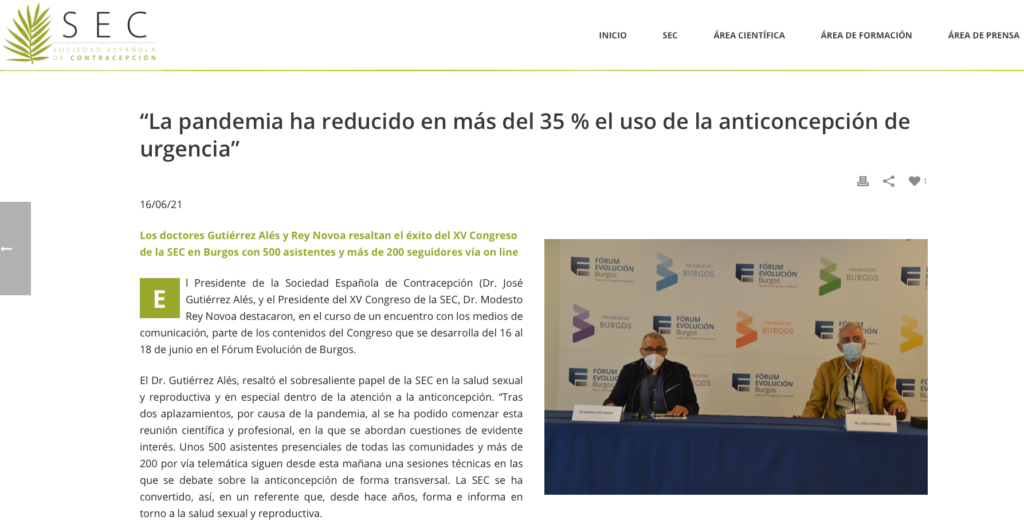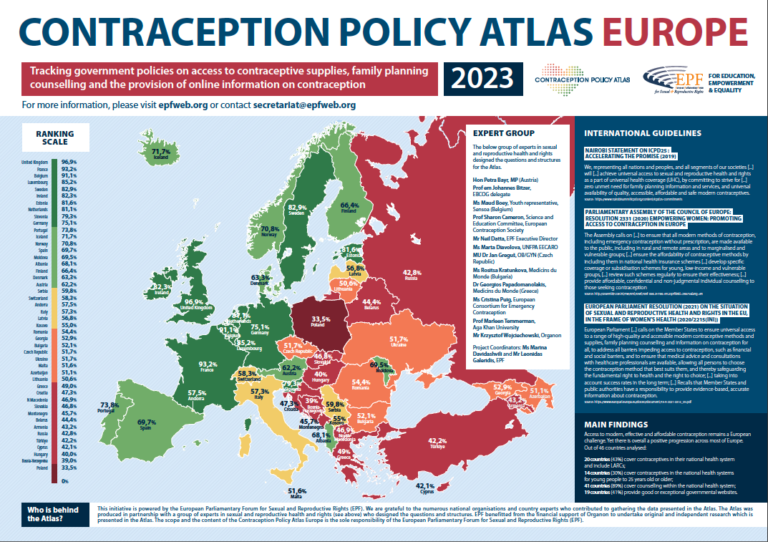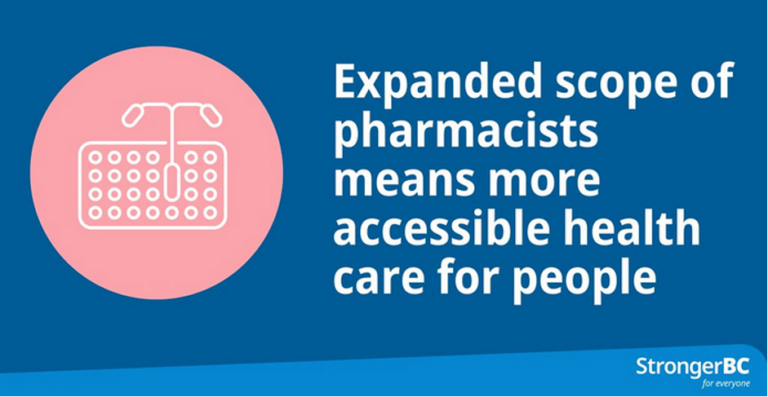Spain: EC use drops due to the pandemic
July 2021. According to the Spanish Society of Contraception (SEC), use of emergency contraception pills dropped among women aged 25 to 30 and 35 to 40, from 38% to 2,7. Read more here:
July 2021. According to the Spanish Society of Contraception (SEC), use of emergency contraception pills dropped among women aged 25 to 30 and 35 to 40, from 38% to 2,7. Read more here:

February 2023. On February 8th, the European Parliamentary Forum for Sexual & Reproductive Rights (EPF) launched the 6th edition of the European Contraception Policies Atlas. Members of the European Parliament Sophie in ‘t Veld and Fred Matic, chaired the event. The United Kingdom, France and Belgium are once again in the top three positions, while…
March 20th, 2018. The International Medical Advisory Panel (IMAP) of the International Planned Parenthood Federation (IPPF), just published its new Statement on emergency contraception (EC). This document offers guidance for health care providers to strengthen the provision of EC services according to the latest research, experiences and international recommendations. While the Statement is primarily intended to inform IPPF Member Associations, it also provides…
May 29 2017. Since mid 2015, and upon recommendation from the European Medicines Agency, EC pills with ulipristal acetate can be bought without prescription from pharmacies in Poland and everywhere else in the European Union except for Hungary. On May 25th, however, Members of Parliament in Poland voted in favor of a new bill which proposes,…
March 22, 2020. The Executive Committee and Secretariat of the European Society of Contraception and Reproductive Health (ESC) announced this past week that, in order to safeguard against COVID-19 and the spread of the coronavirus, the 16th Congress of the ESC (Dublin May 13th-15th 2020) has been postponed until further notice. See https://escrh.eu/event/16th-esc-congress/ for further information. …
HRA Pharma announced that the European Commission, in a historic ruling, has authorized the emergency contraceptive ellaOne® to be accessible directly from pharmacies without the need for a prescription from a doctor. This is the first ever decision of its type regarding any oral contraceptive product applicable to all EU member states, according to national…

December 2023. The Government of British Columbia (Canada) reported the results of the free contraceptive provision program, whichincludes LNG emergency contraceptive pills. Since April 2023, “more than 188.000 people received free contraceptives. This includes more than 123.000 people who received hormonal birth control pills, more than 30.000 people who received IUDs, and more than 37.000…
Menú
This website uses cookies so that we can provide you with the best user experience possible. Cookie information is stored in your browser and performs functions such as recognising you when you return to our website and helping our team to understand which sections of the website you find most interesting and useful.
Strictly Necessary Cookie should be enabled at all times so that we can save your preferences for cookie settings.
If you disable this cookie, we will not be able to save your preferences. This means that every time you visit this website you will need to enable or disable cookies again.
This website uses Google Analytics to collect anonymous information such as the number of visitors to the site, and the most popular pages.
Keeping this cookie enabled helps us to improve our website.
Please enable Strictly Necessary Cookies first so that we can save your preferences!
More information about our Cookie Policy